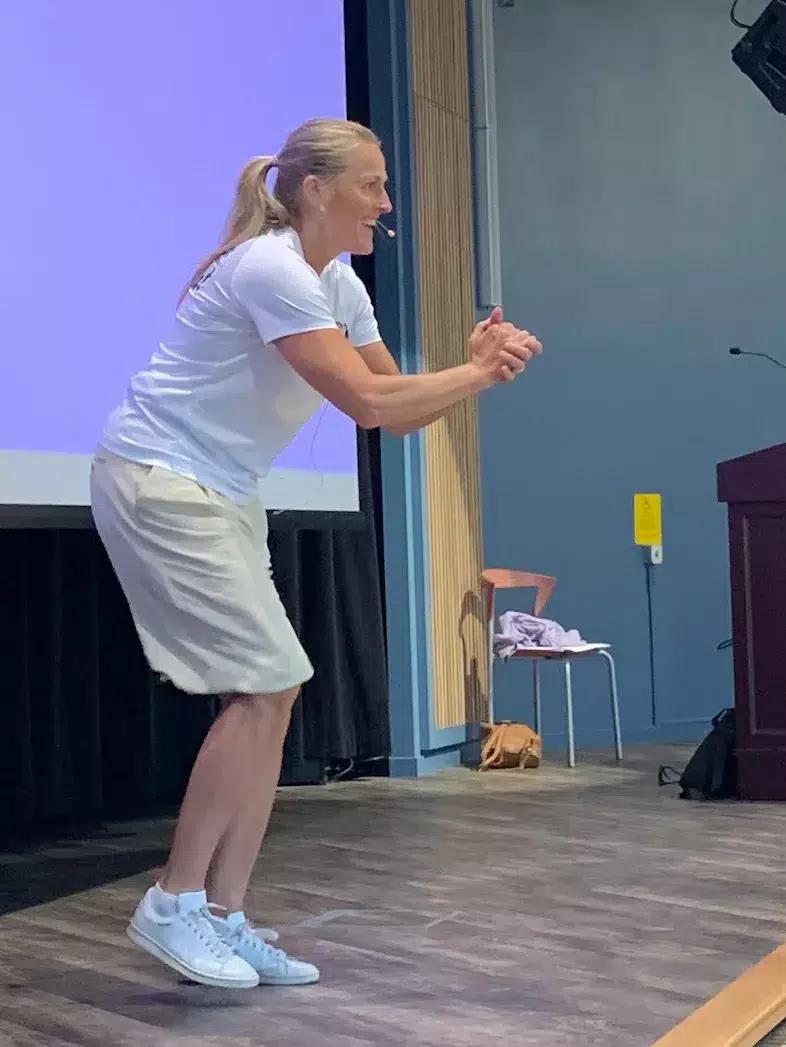That was the title of the KI-Lifestyle4Health open seminar on June 3rd, 2024. The answer, as perhaps expected, was yes, but participants also got the opportunity to listen and discuss research-based examples and practical trials.
Lifestyle4Health is a network at KI that brings together researchers and professionals working on the impact of lifestyle and structural factors on our health. The aim is also to reach out with research-based knowledge to the public and to professionals in various health care sectors.
Monday's packed session therefore welcomed all those interested in how our lifestyles can affect common chronic diseases and the ways in which good lifestyle habits can both prevent and be part of the treatment. The event included three short presentations followed by an invigorating Braining session, the possibility to measure blood pressure, handgrip strength and blood sugar, and a panel discussion where participants could also ask questions to the experts.
Helene Rundqvist started by talking about her research on exercise and cancer. Many people wonder if it is possible to exercise while having a cancer diagnosis, and studies have shown that it is both possible and, in most cases, also recommended. A combination of strength and cardio training can counteract the fatigue that appears during treatment and increase both fitness and quality of life.

Lina Martinsson talked about the implementation of physical activity as an additional treatment in psychiatry and the successful method Braining - training for mental health. The method was invented at the Psychiatry Division Southwest at Huddinge Hospital in 2017 and involves staff and patients doing pulse-raising exercise together.
Kerstin Brismar gave the final presentation, explaining what research has shown about the importance of diet in the treatment and prevention of common diseases. The Mediterranean diet, or the Nordic equivalent, is proven to be beneficial. Low GI diets keep blood sugar in check, as does sticking to a 10-hour eating window and avoiding eating late at night. High insulin is dangerous and in addition to watching your diet, it is good to keep physically fit. Studies show that if you are fit, you get a much smaller insulin spike when you eat carbohydrates than if you are not fit.
Kerstin Brismar is also the co-leader of KI-Lifestyle4Health. As she worried about the future when she saw how we eat wrong, move too little and feel worse she contacted KI's President and suggested to bring together all the research on lifestyle habits and non-communicable disease prevention at KI to reach out to society with the knowledge. The President was positive, so she, along with Carl Johan Sundberg became co-founders. The network was then launched in 2019 with funding from the Axel and Margaret Ax:son Johnson Foundation for Public Benefit.






